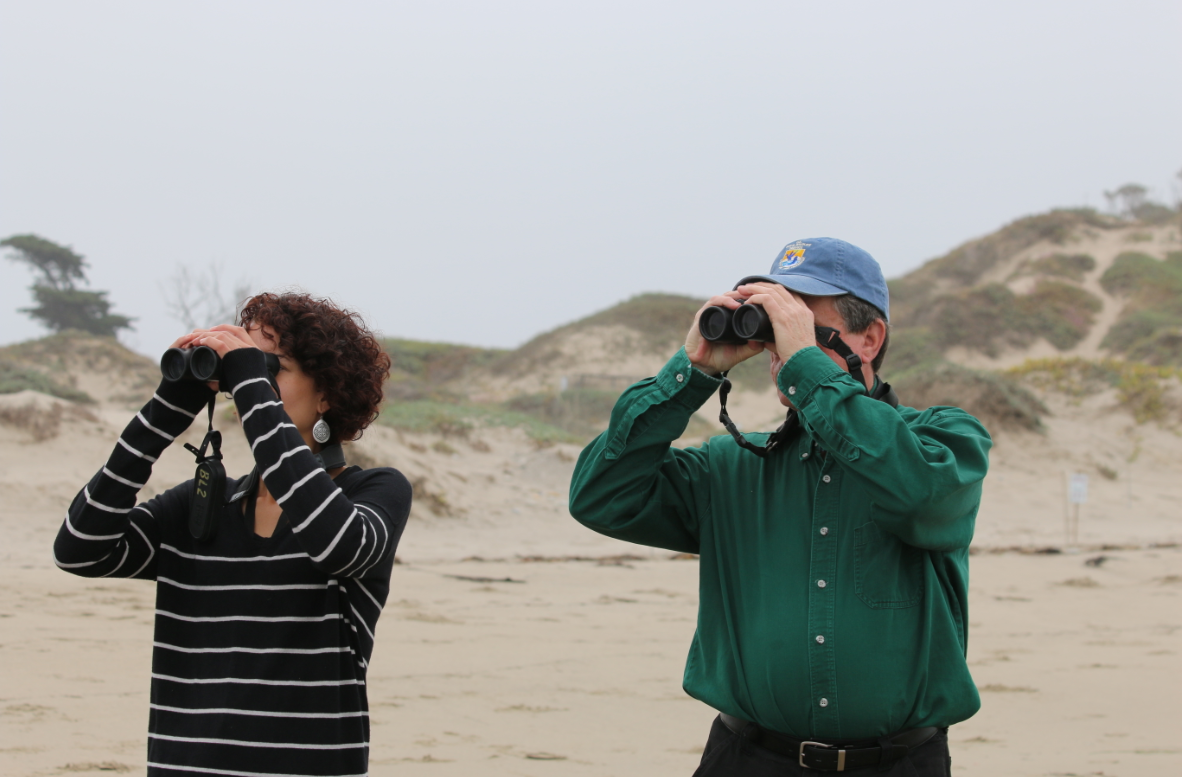
Look at tits and feel happy; a suggestion from The Wildlife Trust
The University of Derby and The Wildlife Trust measured the impact of the UK’s ‘30 Days Wild’ nature challenge on people’s wellbeing. Alongside other benefits, they found that nature-based activities such as bird watching, increase levels of happiness.
Listen up, exchange students. Look at tits because it’s good for your health and happiness – your homesickness remedy couldn’t be easier. Unexpected maybe, but according to a 2016 evaluative study carried out by The Wildlife Trust and Derby University, the suggestion is not farfetched at all.
Before you enthusiastically take hold of this hobby with both hands, just to be clear, it’s the feathered winged variety studied in ornithology that evolved over a million years ago that you’re looking out for. With this in mind, would Thomas More exchange students be inclined to take up a nature-based hobby, like bird-spotting, to help with feelings of homesickness?
Here’s what they had to say
Natalia (21), studying International Tourism and Lesure said: ‘Being around friends always makes me feel better, so no I wouldn’t do it.’
Marina (32) studying Business Management said: ‘Certain aspect of nature brings me happiness, like flowers from a florist but not birds. Whether I see nature or not, my feelings of missing the people I love don’t change. I don’t attach myself to a place, or nature, just people because I’m a people person’
Alvin (20) studying Business Management said: ‘Maybe, but I don’t think it would work for me. I’m not interested in birds.’
Matta (23) studying International Tourism and Lesure said: ‘Yes, I’m used to being with nature especially the sea. It’s a soothing experience and helps me cope with stress.’
The art of bird-spotting
A mixed response it seems. But where to begin if you are intrigued? Even in an urban jungle, there are avian gems to be found. An excellent place to start is opening up your ears by putting away your headphones. Fine-tuning your hearing to detect the tinkling songs of birds will expose you to a forgotten audio frequency.
Listen closely
Bird song is subject to incessant noise pollution in the form of idling vehicles, passing trains and the hum of factories. Not able to compete, the intricate sounds of natural-born top chat hits, are swept away in the breeze. As with any new hobby, persistence is key, but once you regularly notice bird songs, you will soon discover that it becomes one of the first sounds to capture your attention.
Carefully observe
Once ear calibration has taken place, actually seeing the birds you hear is equally as charming. With a trained eye, the wonders of the natural world are unveiled. Flashes of gold, iridescent blue, and polka dots will entrance. In time you will begin to match calls and songs to its vocalist, but this is secondary to the delight that can be experienced by merely being in the moment and taking pleasure from feathered wonders.
Use the right equipment
Binoculars are good tools to get up close and personal with our feathered friends without moving the distance. Not all binoculars are made equal, so selecting a pair that suits your needs is important if you want to get the most out of the hobby. Size and magnification are the two key aspects to keep in mind during the selection process.
Field guides, also known as ID books, are excellent for enhancing your bird-spotting experience. Detailed images and descriptions of birds in field guides allow you to hone your knowledge. Think of it as a fun puzzle. Once you are familiar with the subtle differences in species plumage, flight pattern and where they feed (also known as their habitat), you will be better equipped to work out what it is perched on the park bench.
10 more nature-based activities to try
Maybe looking through binoculars isn’t for you, perhaps following a bee would be a better match? The outdoor ventures in the ‘30 Days Wild’ challenge were boundless.
1. Wiggle your toes in the grass on your lunch break. Experience that wonderful “ahh” moment when you finally take off your shoes at the end of the day, before getting home.
2. Put your nose in it. Inhale the scent of a flower in a pot outside a shop in your town centre.
3. Dance in a downpour. Pull up your hood and sing in the rain on your way to class.
4. Be a book worm. Make the most of the sunshine and read a favourite book somewhere like a friend’s garden, near a stream or under a tree.
5. Watch a wild webcam. Not able to get outside today? Don’t worry, check out these live nature webcams here.
6. Slow down with a snail. Notice the colour on the mollusc’s shell and how it moves across a surface.
7. Find a wild place to walk. Switch up your daily commute to incorporate your local park.
8. Have an organic pamper night. Relax with a raw eye mask using sliced cucumber and play a tranquil and nature-inspired playlist.
9. Save a spider. Take an unwanted guest back to the wild.
10. Keep a photo diary. Capture the seasonal changes in your favourite wild place on camera.
Not every activity will appeal, but the point is that engaging with our natural environments whether that is through bird-spotting or something else, feels good. Curing the deep-rooted sensation of longing for your dearest and home comforts is unlikely to happen, but involving aspects of nature in your day-to-day schedule, could brighten your days.
For more information and ideas on how to incorporate nature into your day, wherever you live, head to The Wildlife Trust’s website to get inspired.
Text: Sara-Jane Vanstone, picture: A Better Look (CC BY 2.0)



